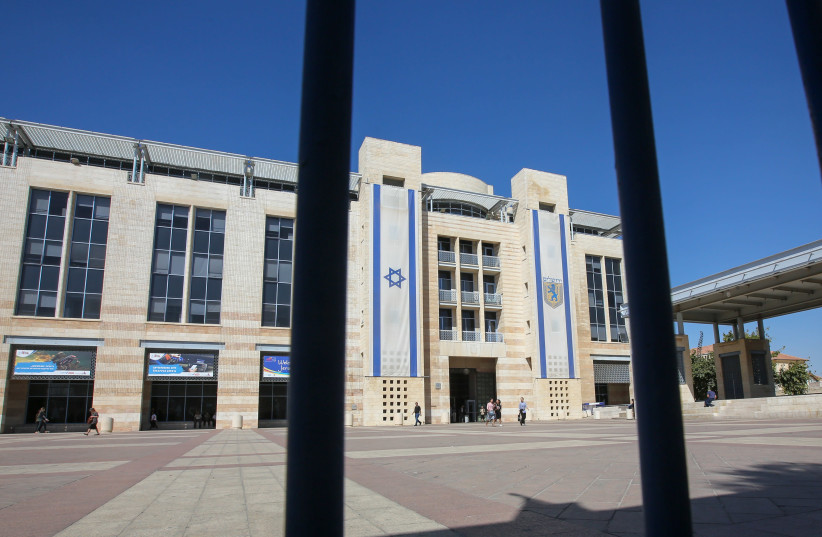Last Sunday afternoon, the small soccer field in the heart of the Jewish Abu Tor neighborhood was full of children and their family members, who came not only to encourage the kids participating in the game, but to protest what they say is abuse by the municipality in its plans for the area.
The lovable game brings together children from the eastern and western sides of this Seam Line neighborhood. This time it also brought together about 300 residents who recenlty signed a petition against the city’s plan to build an auditorium on the field.
The concern is not only about a plan they didn’t ask for, but a bad feeling that this plan is the worst thing that could be done in these uneasy times, with the tensions creeping into the different populations of the neighborhood. “We feel that the municipality not only ignores our real needs, but also grossly defeats the local cooperative initiatives, which are so important these days,” says a woman who has been living there for more than 20 years.
Residents’ anger is directed at a plan the city is promoting in which the soccer pitch next to Beit Nehemiah will be demolished to make space for an addition to the Nehemiah Center. This structure, once a community center, became a pre-military academy for youth enlisting into elite army units. Since that change about a decade ago, under mayor Nir Barkat, the Jewish part of Abu Tor became part of the Greater Baka local council and community center.
The residents say their first mistake was to give up the building as a community center, because the facts on the ground indicate that since then things have only gotten worse, from their point of view. “This is a small, crowded neighborhood,” explains Shira Breuer, a member of the action committee fighting the city’s expansion plan.

“We have a total of about 1,300 residents on the Jewish side, while the Arab neighborhood, Abu Tori, has about 12,000 residents. They have their needs and their shortcomings to complete, while ours is a very small neighborhood, and the main problem with us in recent years is in the area of traffic within the neighborhood, with a severe shortage of parking, especially since the Yes Planet center opened, and narrow streets within.”
Breuer says that about a few months ago residents were informed that the municipality made a decision that the Nehemiah Center would be expanded. The plan is to build a 400-seat hall and auditorium, to be built on part of the playground used by the neighborhood’s children.
“I do not understand how, especially these days, that it is so important to do everything in order to calm things down and promote coexistence plans, there are people in the municipality who think that the most urgent thing is to destroy this plot of land?
“It’s a local neighborhood initiative, where kids from both sides of the neighborhood meet, and their coach today was in the past himself a kid who came from Abu Tori to play with our kids here.
“Why destroy it?”
Not only were residents bewildered, so was the school adjacent to the soccer field. The pitch is located on an area belonging to an educational institution that serves children with special needs. The school administration didn’t know about the plan to swallow up half of the plot of land either, which would prevent the establishment from expanding its building if it so desired in the future.
But the aspect that most angers the residents of the neighborhood on the Jewish side is what they see as the complete disregard for them and their desires from the city’s authorities.
“The manager of the Greater Baka council to which we belong isn’t representing us in this matter – and we feel alone in the campaign,” says Breuer. “We asked for an amplifier for the game last Sunday and we were refused, so finally, one of the residents brought his own private one. But what does that say about our representation when dealing with the authorities?”
The municipality declined to comment by press time. ❖
